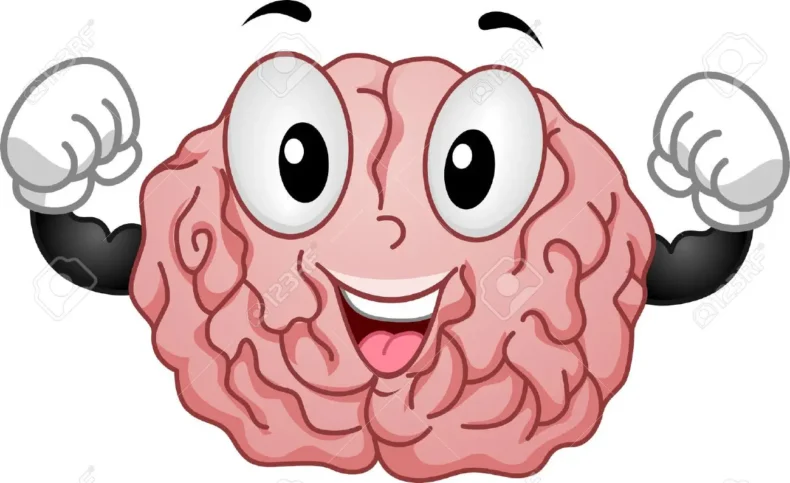Time is of the essence in every aspect of life. Understanding the value of time and utilising it for the good of all is the need of the hour. When it comes to the healthcare industry, there is no comparison to the importance of time. The faster response to any health issue delays its severity.

Brain it
The brain is that one main aunt of the family who, if not supplied with essential, consistent, and timely importance, will produce a family dispute. The brain, as an important member of the body family, requires consistent and healthy attention, as a lack of it will result in severe consequences.
It does not take a rocket science course to understand the necessity of a healthy and functioning brain. We need to grasp the strength it needs to keep up with all the processing and a forever-running brain.

We do not need extreme insight on how-to-do steps as the need for first aid can be avoided with basic knowledge and information.
Nobody Plans an Encounter
As humans, we know health issues are inevitable and cannot be avoided. We also understand that every part of the body will and does get affected by ailments every now and then.
When it comes down to an important part of the body—the brain—the surprise of ailments is usually appalling, as one does not plan to be mentally (psychologically, psychiatrically, or pathologically) ill.

The unplanned encounter produces a riff and wave of tension and stress among patients and their caregivers. Even with all the health insurance coverage, financial constraints and consultations with good doctors, a disease in the brain still ropes in the dilemma of survival.
Several types of brain health issues can produce such effects, such as:
- Minor to major brain fog
- Minor and major epileptic and non-epileptic attacks
- Chronic migraine
- Brain tumour
- Haemorrhage
- Stroke
Stroke
The brain essentially works on the oxygen supply and the strength of its blood vessels to sustain all the changes and processes that happen within.
But the sudden disturbances faced by the brain lead to severe problems. Stroke is one of them.

A stroke is an attack on the brain that happens when weak or broken blood vessels cut off the flow of blood to the brain.
Stoke causes many issues, like long-term brain damage, brain disability, and death.
World Stroke Day
In this era of flexible lifestyles, health issues like early menopause in women and stroke in younger people are being observed. In order to curb the spread of such situations, which are found in older age groups, awareness programs are organized every now and then.

The World Stroke Organization came up with World Stroke Day in order to spread awareness about the symptoms, people who are more susceptible, timely intervention, and aftercare.
The 2022 Theme
The theme for World Stroke Day this year is “Minutes can save lives.” This is because every awareness program needs to have a theme that shows what it is about.
Their emphasis is on recognising the signs of a stroke and providing fast and timely medical intervention. This effort reduces the chances of the stroke’s severity and can produce life-altering results.

Because we live in the age of social media and hashtag trends, the theme has been transformed into #precioustime, which can be used as a tag on social media platforms to attract eyeballs and increase awareness.
Understanding the susceptible range and the reasons
The prospect of falling under the hammer of a stroke lies behind many different reasons. The educated mind doesn’t deny that a family history of stroke is possible and is ready to deal with the bad news.

But what remains is the patient who did not anticipate such a health hazard. For this, we need to understand the types of stroke:
- Ischemic Stroke (Blood Clots): A sudden blockage in blood vessels reduces oxygen supply to brain cells, causing them to die within minutes. This can occur because of fatty deposits (plaque) which create blockages.
- Haemorrhage Stroke: The leaking of blood from the artery in the brain creates pressure which damages the brain. High blood pressure and aneurysms are the causes of this kind of stroke.
- A mini-stroke is different from other types of strokes in that it carries minute symptoms of a stroke and lasts for a very short period of time.
It is difficult to recognise the kind of stroke at the time of the incident. One can reduce the chances of severity by using fast and accurate medical intervention. Time is indeed precious when it comes to strokes.
People who are more susceptible to strokes are those who fall into the age group of 45–65. This age group is termed the “productive age” as the most learned and worked-up individuals fall into this.

Despite having a set age group for strokes, it cannot be claimed that people who fall within or above this age bar are out of harm’s way.
If the physical and pathological health is not taken care of, it is more likely to get a blood clot or bleed because it is old and degenerates quickly.
Save lives with healthy lifestyles and fast reactions
The dilemma of enjoying life and being precautious about anything consumed often rips a hole in the process of living life to its fullest. But with a good and balanced lifestyle, it is easily achievable.
When we go to the doctor regularly and keep track of health problems through our family history, we reduce the chance of being surprised by health risks and can plan our lives accordingly.

Furthermore, we should make ourselves more aware of the health issues circling our age group and eat and exercise accordingly. Through being aware, we will be able to act quickly in a serious health emergency and save lives.













